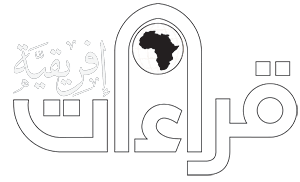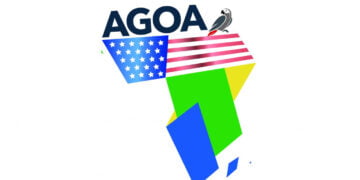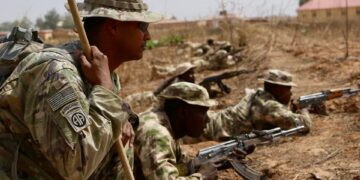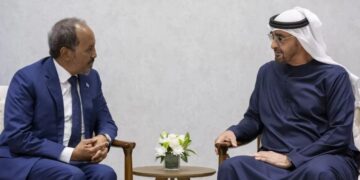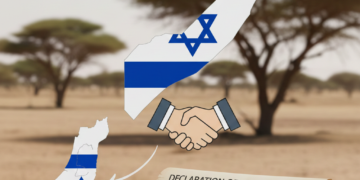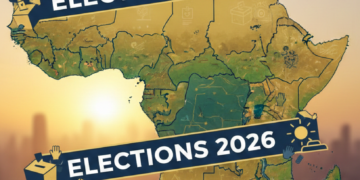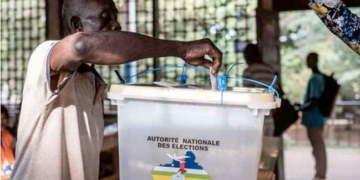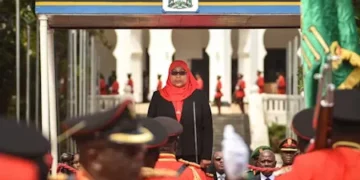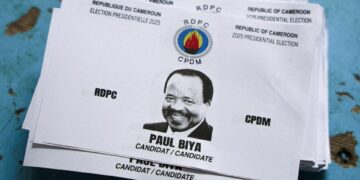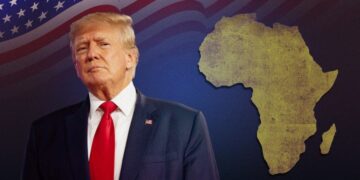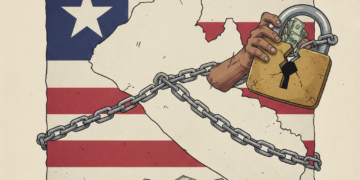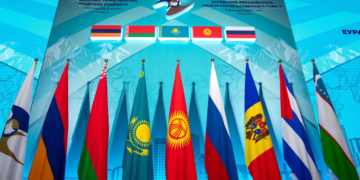Abstract: The Horn of Africa is home to many different tribes, nationalities and ethnicities, thus making it a major library with so many different cultures. However, it is one of the heights regions in terms of witnessing ethnic conflicts and disputes between different nationalities for long decades. This is in light of the failure of different governments to manage ethnic pluralism in their countries in order to prevent conflicts, more wars and bloodshed. The risk of violent conflicts, persisting to this day, threatens the future security and stability of the region in the next phase, which affects the positive advances in the recent period. The Horn of Africa is characterized by being the home of multiple ethnic groups, which exceeds 100 ethnic groups, most of which are in Ethiopia, where there are, according to statistics, more than 80 ethnic groups. This is a double-edged sword for the countries of the region, especially in light of the prevalence of the crisis of national integration that afflicts most of the African continent and resulted in falling into the clutches of many conflicts and ethnic disputes, which had negative repercussions on the internal security and stability of these countries as well as at the continental level in general. It should be noted that the States of the Horn of Africa were not far from emerging conflicts and disputes over ethnic pluralism. The countries of the region are witnessing a kind of overlap between ethnic groups, especially in the border areas and cities, which will either strengthen the bonds of interdependence between them or result in disharmony. This is in the midst of conflicts emerging between them, and in light of the roles that could be played by the various nationalities both at the political and security levels to destabilize the regimes in favor of other regional parties. Resolving the crisis and finding viable solutions remain contingent on a number of norms, most notably the political will of African rulers to well- manage ethnic pluralism in their countries in a positive way, the fair distribution of wealth and power without any discrimination, adherence to the rules of democracy in elections and peaceful transfer of power, universal access to power through fair and transparent elections, in addition to the elimination of colonial legacy, especially with regard to some policies and practices that persist to this day, and finally the need to neutralize the international factor in issues specific to the internal affairs of African countries.
الملخص: تحتضن منطقة القرن الإفريقي العديد من القبائل والقوميات والعرقيات الإثنية المختلفة بما يجعلها بمثابة مكتبة كبرى تحتوي ثقافات عديدة ومتنوعة ومختلفة، إلا أنها تعد إحدى أكثر المناطق التي تشهد معظم دولها صراعات ونزاعات إثنية بين القوميات المختلفة منذ عقود وسنوات طويلة، في ظل إخفاق الحكومات المختلفة في إدارة التعددية الإثنية في دولها بما يمنع تلك الصراعات ويحتقن المزيد من الحروب والدماء. ومع استمرار مخاطر تلك الصراعات إلى الوقت الراهن، يهدد ذلك مستقبل أمن واستقرار المنطقة خلال المرحلة المقبلة بما يؤثر على تطوراتها الإيجابية التي شهدتها خلال الفترة الأخيرة. تتميز منطقة القرن الإفريقي بكونها متحف للجماعات الإثنية المتعددة والتي تتجاوز بدورها مئة جماعة إثنية توجد أكثرها في دولة إثيوبيا التي أشارت الإحصاءات إلى وجود أكثر من 80 جماعة إثنية بها. الأمر الذي يعد سلاحًا ذي حدين بالنسبة لدول المنطقة خاصة في ظل شيوع أزمة الاندماج الوطني التي تعاني منها معظم دول القارة الإفريقية وأسفرت عن سقوطها في براثن العديد من الصراعات والنزاعات الإثنية التي كان لها انعكاساتها السلبية على أمن واستقرار تلك الدول داخليًا وعلى الصعيد القاري بشكل عام والتي لم تكن دول القرن الإفريقي ببعيدة عنها. وتشهد دول المنطقة نوعًا من التداخل الإثني فيما بينها خاصة في المناطق والمدن الحدودية، والتي من شأنها إما تعزيز أواصر الترابط بين الدولتين أو التنافر في ظل قيام الصراعات والحروب بينها في ضوء الأدوار التي يمكن أن تلعبها تلك القوميات سواء سياسيًا أو أمنيًا لزعزعة استقرار النظم الحاكمة لصالح أطراف أخرى إقليمية. إن تسوية هذه الأزمة والوصول لحلول ناجعة يظل مرهونًا بعدد من المعايير أبرزها توافر الإرادة السياسية لدى الحكام الأفارقة بإدارة التعددية الإثنية في بلادهم بشكل جيد وإيجابي، وتقسيم الثروة والسلطة على الجميع بشكل عادل دون تمييز. والالتزام بقواعد الديمقراطية في الانتخابات والتداول السلمي للسلطة، وإتاحة الفرصة أمام الجميع للوصول إلى السلطة من خلال انتخابات نزيهة وشفافة، بالإضافة إلى التخلص من الإرث الاستعماري خاصة فيما يتعلق ببعض السياسات والممارسات المستمرة حتى وقتنا هذا، وأخيرًا ضرورة تحييد العامل الدولي في المسائل التي تخص الشأن الداخلي للدول الإفريقية.
